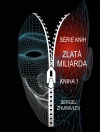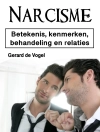Examines the question of science, epistemology, and unconscious experience in psychoanalytic theory and practice.
Psychoanalysis has long been charged as being a pseudoscience. This timely book explores and reexamines the nature of psychoanalysis within contemporary debates about science, epistemology, unconscious experience, and the philosophy of mind. Distinguished scholars and practitioners from diverse backgrounds in psychoanalysis, philosophy, and psychology offer both favorable and critical accounts of psychoanalytic theory and practice from Freud and Lacan through contemporary revisionist philosophical perspectives.
Tabela de Conteúdo
Preface
Acknowledgments
1. The Role of Being and Experience in Freud’s Unconscious Ontology
M. Guy Thompson
2. Formulating Unconscious Experience: From Freud to Binswanger and Sullivan
Roger Frie
3. Truth, Mind, and Objectivity
Marcia Cavell
4. Freud and Searle on the Ontology of the Unconscious
David Livingstone Smith
5. Paranoiac Episteme
Jon Mills
6. From Myth to Metaphysics: Freud and Wittgenstein as Philosophical Thinkers
James C. Edwards
7. The Hermeneutic Versus the Scientific Conception of Psychoanalysis
Adolf Grunbaum
8. The Possibility of a Scientific Psychoanalysis
Joseph Margolis
9. Incompleteness and Experimental Untestability in Psychoanalysis
Donald Levy
List of Contributors
Index
Sobre o autor
Jon Mills is a psychologist, philosopher, and psychoanalyst in private practice; President of the Section on Psychoanalysis, Canadian Psychological Association; and Senior Faculty at the Adler School of Professional Psychology in Toronto. He is the author of The Unconscious Abyss: Hegel’s Anticipation of Psychoanalysisand the editor of Rereading Freud: Psychoanalysis through Philosophy, both published by SUNY Press.












